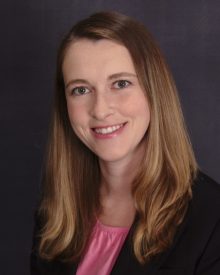

October 15, 2019 | By Sarah Lippert, MD, FACS
When individuals think about breast disease, most of the time they think about breast cancer, but not all breast disease is cancer. And not all breast disease involves women. Let’s take a look at some of the more common forms of breast disease.
Blocked milk ducts (mammary duct ectasia) are just what they sound like – painful, warm or swollen areas of the breast caused by a blockage in a milk duct.
Calcifications are calcium deposits within breast tissue and often show up on a mammogram as white spots. Most of the time, these deposits are not cancerous, but if they appear in tight clusters, they may indicate a precancerous condition and should be evaluated.
Cysts are fluid-filled sacs inside the breast. Cysts usually are not cancerous, but surgeons typically drain the fluid to test for cancer and to relieve symptoms. Unless cancer is found, no further treatment is usually required.
Fibroadenomas are solid, but noncancerous, breast lumps. In some cases, they can shrink on their own. If they are causing symptoms, a surgeon can remove them.
Fibrocystic breast changes simply refer to changes in the texture of the breast, giving it a lumpy or irregular surface. This often is related to hormonal changes and usually needs no treatment.
Galactorrhea is a breast discharge unrelated to childbirth or breastfeeding. It could be a milky substance, clear liquid or blood. Any breast discharge should be evaluated to rule out cancer.
Gynecomastia is a swelling of breast tissue in men, often due to a reduction in testosterone. It occurs in approximately one out of four men between the ages of 50 and 69.
Intraductal papillomas are wart-like growths inside the milk ducts. Symptoms can be a lump near the nipple or sometimes nipple discharge.
Mastitis is an inflammation of breast tissue from an infection. In addition to breast pain and swelling, this also can cause warmth and redness of the tissue. If it involves an infection, a patient also might experience fever and chills. Mastitis can occur in anyone, including men.
This list is not all-inclusive. If you notice any change in your breasts, especially lumps, pain, discharge or skin irritation, please give us a call. Our surgeons can diagnose and treat a wide variety of breast diseases.